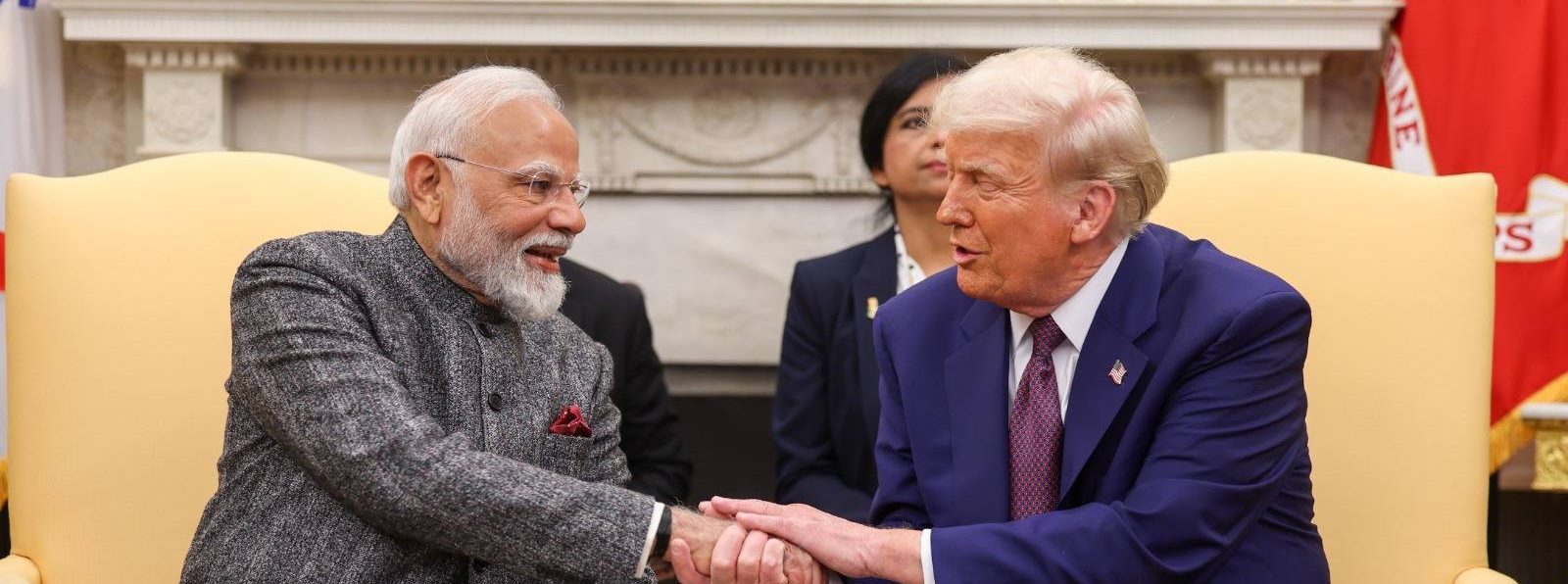
Comment writer Abby Rosser explores Prime Minister Modi’s support for President Trump and ponders the role of ideological agreement when forming international alliances
In February, a meeting between President Donald Trump and Indian Prime Minister Narendra Modi was conducted to discuss a range of topics, including trade barriers and immigration. Despite Trump describing India’s trade tariffs as a ‘big problem,’ Modi praised the Trump administration and its ‘Make America Great Again’ slogan. In the aftermath of the two-day meeting, President Trump claimed that the US bond with India is the ‘strongest it has ever been’. Despite ongoing disputes over economic policies, the relationship between the two nations is seemingly secure due to their ideological alignment. This begs the question: is an ideological alliance more effective than aligned economic interests?
As President of the United States, Donald Trump wields significant power and influence on the global stage. His brazen and seemingly unpredictable attitude has culminated in world leaders catering to his aims and goals. In addition, his emphasis on personalised diplomacy has left world leaders with little choice than to appease him in order to land in his favour. However, the actions of Narendra Modi take this much further. Not only did the Prime Minister join Truth Social, the social media platform created by Trump when he was banned from major social networks, but he put his own spin on MAGA: ‘it’s make India Great Again- MIGA!’ I believe that the relationship between Modi and Trump, therefore, is underpinned by a right-wing alliance which is contributing to the success of their bilateral partnership.
…Modi has faced accusations of ‘democratic backsliding,’ one that has also faced Trump in recent months.
However, despite the ideological alignment of the BJP and the Trump administration, the importance of economic interests cannot be downplayed. The prospect of Trump’s ‘economy buckling tariffs’ meant that Modi arrived at the White House with his own concessions, such as the reduction of tariffs on US goods, and an increased in US oil imports. The meeting culminated in a joint goal of ‘doubling bilateral trade to attain $500bn by 2030,’ which suggests that economic alignment is key to an effective trade partnership. Following the February meeting, Modi stated “when America and India work together, when it is MAGA plus MIGA, it becomes mega- a mega partnership for prosperity.” While the focus remains on economic prosperity and growth, I would argue that Modi’s reciprocation of Trump’s ideological stance suggests that he and the BJP have a higher propensity for a fruitful bilateral trade partnership with the United States.
…perhaps ideological alignment is not as effective as economic alignment and historical relationships.
Alternatively, I would argue that the Indian Prime Minister’s subscription to the MAGA ideology does not show a decline in the importance of economic alignment in global affairs but, instead, provides an insight into how ideological ties can bolster an international trade partnership – especially when said partnership involves a President bearing such extreme values and irrational views. Ultimately, the US-India relationship supports my notion that ideological alignment can support beneficial trade arrangements.
If you liked this, try reading…
The World Reacts to Trump’s Tariffs
The Political Standoff that Threatened the US-Ukraine Alliance – What Happened and Why?
Comments